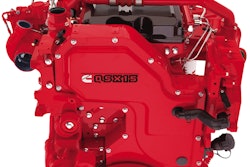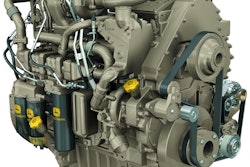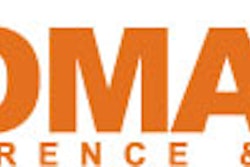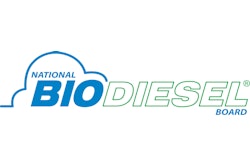Thomas Built Buses is the first school bus manufacturer to achieve Zero-Waste-to-Landfill operations.
Zero-Waste-to-Landfill means that everything received or produced by the company is used, reused, recycled or sold, and nothing is sent to the landfill. Using the company’s Truck Operating System (TOS) continuous improvement program, Thomas employee teams identified the best options for reducing waste and recycling each material, whether reusing cartons for shipping, reclaiming solvent, working with supplier partners to reduce packaging or turning waste into energy.
“We carted our last load to the landfill in December and reopened as a Zero-Waste-to-Landfill company in January. We are delighted to be starting the new year with a literal ‘clean slate’,” says Kelley Platt, president and CEO of Thomas Built Buses, a subsidiary of Daimler Trucks North America LLC (DTNA).
The Zero-Waste-to-Landfill goal was initiated by Daimler AG to reduce the carbon footprint of manufacturing facilities under the Daimler umbrella. Today, Thomas Built Buses joins an elite group of landfill-free manufacturing facilities in the United States.
“We are proud to have Thomas as part of the Daimler Trucks North America family,” says Roger Nielsen, chief operating officer of DTNA. “The journey to and achievement of Zero-Waste-to-Landfill is just one example of Thomas Built’s commitment to sustainability. With a system of continuous improvement, Thomas Built is shaping the future of school bus transportation through Clean Drive Technologies and innovations that contribute to advances in safety, technology and environmental stewardship.”
Every Thomas employee had a hand in realizing this goal, and from 2008 to 2010, the company nearly doubled its recycling of wood and nearly tripled its paper recycling. During the same time frame, Thomas Built has focused on reducing water consumption and decreasing its energy use overall.
From solar panels to ISO 14001 certification to clean drive buses, Thomas Built Buses has a robust environmental program that demonstrates its industry leadership as a driving force in facility waste management and its environmental commitment.
DTNA is proud to be a part of Duke Energy’s distributed generation plan, in which electricity is produced at numerous solar panel micro-generating sites, rather than at a large, centralized, traditional power plant.
Through a 25-year contract, Thomas Built is providing the land to support 1,690 solar panels, owned and operated by Duke Energy. This Photovoltaic (PV) Solar Field project will produce 389 kilowatts of renewable energy for the Duke Energy Power Grid – enough electricity to power approximately 41 homes.
Installation in High Point, NC, began in July of 2010, and Thomas-hosted panels went online December 15, 2010. A second North Carolina DTNA facility is bringing on an additional 1,560 panels later this year.
“At Thomas, we are committed to building quality buses, and because it is part of our leadership mission to do so in an environmentally responsible manner, our sustainability achievement did not just start in 2011,” Platt says, citing Thomas’ ISO 14001 certification and involvement with the EPA WasteWise program.
While all of Thomas Built’s manufacturing facilities became ISO 14001 certified in January 2010, the Saf-T-Liner C2 plant, chassis plant and Minotour production line earned ISO 14001 certification in December 2004. ISO 14001 is an internationally-recognized set of standards for environmental performance that goes beyond basic compliance with environmental regulations.
To further bolster its credentials through association with reputable organizations, Thomas became a voluntary member of the EPA’s WasteWise program in 2009. Using a data management and reporting system, member sites collect, organize and analyze their municipal solid waste information, then track waste reduction activities.
Thomas is committed to reducing its environmental footprint with clean manufacturing efforts, and to developing products that help reduce emissions and lower dependence on fossil fuels. As part of the global vehicle manufacturer, Daimler AG, Thomas Built has access to some of the most cutting-edge technology available.
“Just by virtue of its role in society, each school bus contributes to environmental stewardship by taking 36 cars off the road for every route driven,” Platt says. “At Thomas Built, we want to produce a full line of buses that do more than take cars off the road. We want to and do offer buses that exceed current standards of environmental performance.”
Thomas Built Buses currently manufactures both Type C hybrid-electric and Type D compressed natural gas (CNG) buses. Consistent with the company’s commitment to offer its customers a robust line of alternative-powered products, Thomas Built also is working to introduce Saf-T-Liner C2 and Minotour propane-fueled school buses in 2012.
“Our employees have worked hard to make Zero-Waste-to-Landfill and other facility waste management and environmental advancements a reality,” says Platt. “With our Zero-Waste-to-Landfill facility, solar panels and a growing list of Clean Drive Technologies, our buses are green from the ground up as well as inside and out, making Thomas Built Buses the leading sustainable school bus manufacturer. More reasons we are proud to put our children, and yours, on a Thomas.”



















